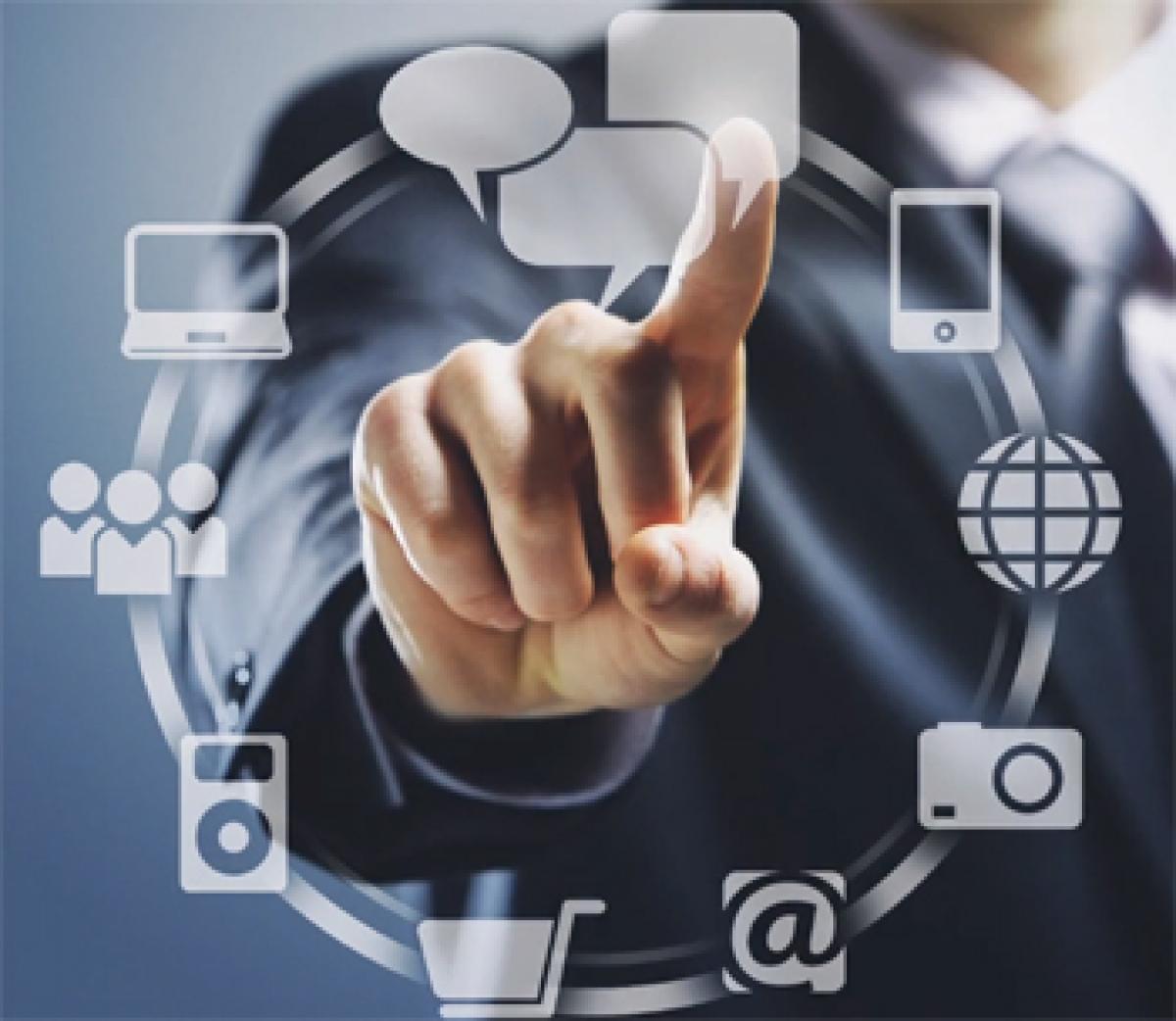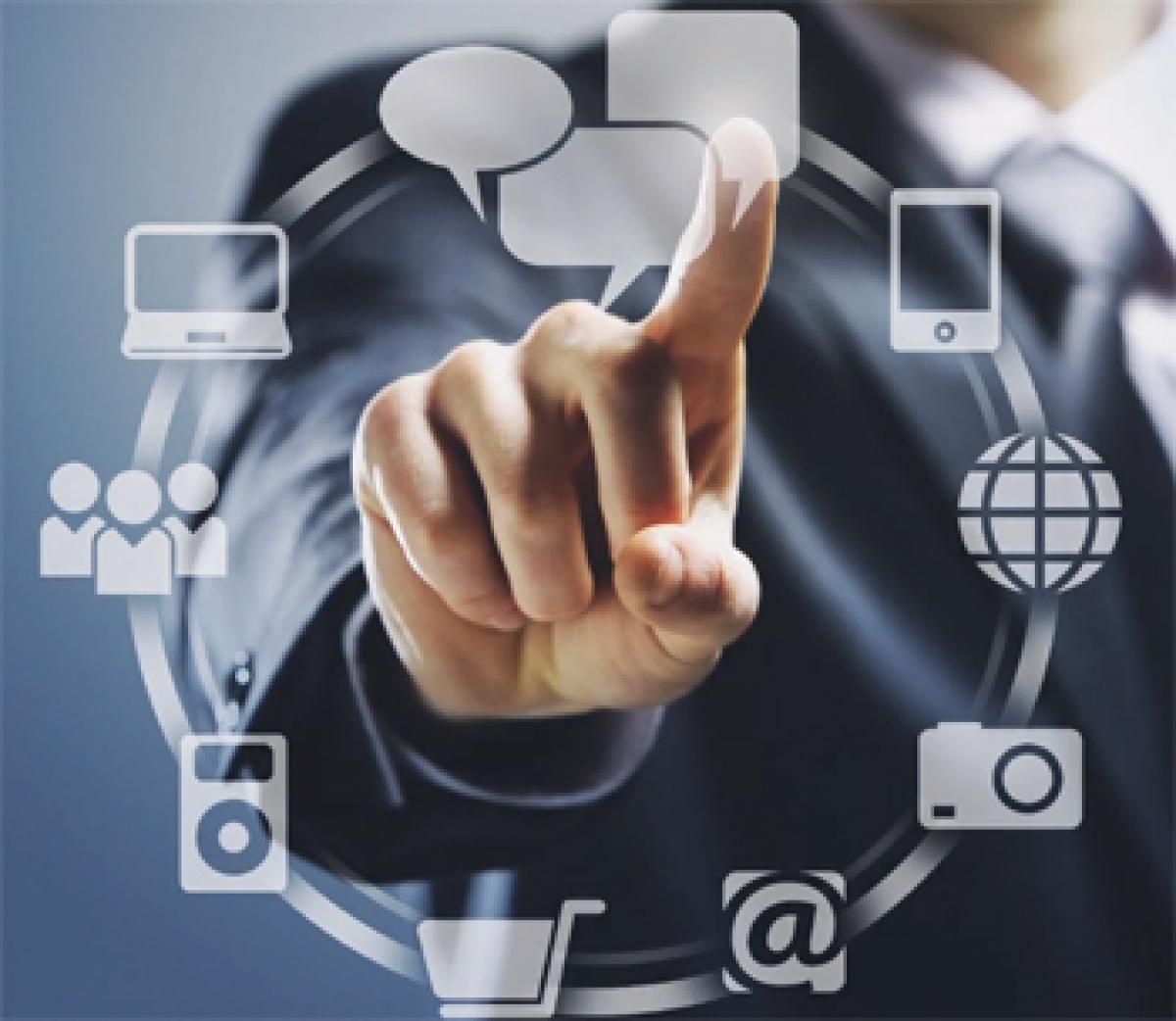Live
- ICC chief Jay Shah meets Brisbane 2032 Olympics organising committee CEO
- Oxford Grammar High School Celebrates 44th Annual Sports Day with Grandeur
- Indian banking sector’s health remains robust, govt policy working very well: Top bankers
- iOS 18.2 Unveiled: New Features with ChatGPT Integration Revolutionize Your iPhone
- 'Run for Viksit Rajasthan' to be annual event, says CM Sharma
- Nitish Kumar launches '109 free medicine vehicles' in Patna
- India have to play their best cricket at the Gabba to win series: Harbhajan
- Income tax refunds jump 46.3 pc to Rs 3.04 lakh crore in April-Nov
- Financial Intelligence Unit detects undisclosed income worth Rs 11,000 crore in 2024: Centre
- Odisha BJP chief to be elected in January
Just In
How information technology transformed the hospitality industry


How information technology transformed the hospitality industry. The hospitality industry has undergone some fundamental changes over the past two decades and not only in terms of design and technology.
 The hospitality industry has undergone some fundamental changes over the past two decades and not only in terms of design and technology. Mainly in the way we manage our distribution platform, how we engage with customers and how we harness the enormous power of the internet to provide a flawless customer experience.
The hospitality industry has undergone some fundamental changes over the past two decades and not only in terms of design and technology. Mainly in the way we manage our distribution platform, how we engage with customers and how we harness the enormous power of the internet to provide a flawless customer experience.
For centuries, technology has redefined industries and changed competitive landscapes and also the way in which we communicate, obtain information and entertain ourselves, conduct research or even order pizza. Making a room or dinner reservation via smart phone is not a technological novelty anymore but is considered the norm; technology has compressed timeframes.
IT equipment at hotels has taken a quantum leap over the last few years. Technology is the underlying driver for almost everything we do today in our hotels. Over the next few years we will see a lot of advancement and new features available via software rather than hardware.
As the smart devices continue to define the way we work and live, we will see more and more applications available not only to the guests but also, more importantly, to our employees. These applications will empower them to perform more efficiently and consequently exceed guest expectations.
Another trend shift that is happening rather sooner than later is cutting the proverbial cord and moving wireless wherever feasible. We already saw this shift in terms of internet connectivity. Cyber security and encryption aside, today, 90 per cemt of our guests connect to the internet using Wi-Fi rather than a network cables that will become redundant before this decade is over.
We will see a similar shift in another two aspects — media streaming in guest rooms and charging of mobile devices. Content is king. The customer of today decides what content he wants to watch where and when and on which device.
The modern businessman either travels with his own VGA cable or ask the concierge to get them a HDMI cable with adaptor to connect their ipads to the TV. Other customers travel with their own Googel Chrome cast devise that transfers Bluetooth from laptops to TV thus bypassing the hotel’s entertainment system.
We all know the frustrations of having misplaced or, God forbid, lost the mobile charger. As more and more manufactures are building in this capability into the smart devices, hotels will soon offer their guests the option to charge their devices by simply placing the devices on the most common places, like the bed side table or writing desk in the rooms — no more cables.
Years ago, interactive TV’s were the latest technology fashion. Most large hotel companies have them but let’s be honest, they were not the success we envisioned and the ROI is negligible notwithstanding the difficulties to maintain the system.
Currently, the interactive TV can provide options like personalised message when a guest enters the room, options to browse the internet, pre-installed apps on the HDTV and interface capabilities with room controls. We are working towards integrating these experiences within our apps to take personalisation to the next level.
Possibilities through the application are integrating room’s controls such as lighting, temperature control, TV channels with the app so that when the guests enter the room, all these are pre-set to their liking—all controllable via an application the customers have on their mobile devices.
Interactive TVs are not the exception anymore but rather the norm—it is also highly practical from a hotel’s point of view, having interactive TVs or touch screen devices where things can be ordered at the touch of a fingertip.
So why wasting money printing in room dining menus and guest compendiums? General information and menu changes can be updated every single day without incurring printing cost. Why calling front office and asking for the latest balance. That information is available via an interactive TV or a property specific tablet.
Advancement in technology is not only for our customers. For employees it will be a move from desktop to portable apps and easy integration between various technologies. The age of the desktop computer is coming to an end. What goes for the CEO also applies for our associates.
Associates will be less attached to their desks and will use devices more and more to communicate with others, whether through special applications linking, H/K with F/O and engineering apps for updating room status, delivering guest requests and fixing things in guest rooms, or using mobile PMS and POS devices to service guests.
As more customers will bring their devices with them they will demand access to their own content like iTunes or NetFlics account) from hotels. Can you imagine you are with your family and children in an attractive resort destination and are forced to watch videos that the hotel or hotel’s provider chooses for you? With your own cloud-based movie library, you are independent and can create your own entertainment cycle—the only thing you need is access to the internet.
What this means for us in hotels is that we have to make sure we do not invest too much into the latest fad that may become obsolete before it has been depreciated but focus on improving connectivity through cables and wireless access points in guest and admin areas and flexible technologies.We all have seen the magic touch of Android and IOS based phones.
Redefining the way business travelers arrive at hotels and check in to their rooms in India, Starwood Hotels & Resorts has introduced ‘keyless’ entry, allowing guests to bypass the front desk, go directly to their rooms and unlock them with their smart phones.
This might take some time to become mainstream but definitely is the way to go as more and more things will become Smartphone centric. Starwood introduced this technology in 10 properties last year across three of its brands: Aloft, W and Element — beginning with the USA and followed by Mexico, Singapore, Hong Kong and Qatar.
India is the sixth global location for the rollout of keyless entry and it made its debut at Aloft Bengaluru Cessna Business Park in March this year. This technology will only work on locks with the right proprietary technology but it is a great tool to create a unique customer experience as it eliminates standing in line at the check in counter.
This guest experience provides a seamless travel experience. The question then we should ask is: will it diminish the level of service I receive or is this the price we all have to pay in future for efficiency and a very subtle intrusion to our privacy and inner self.
Today it is smart phone and apple watches that open guestroom doors, tomorrow it will be biometric and retina technology that opens guest room doors that provide the latest technology and security for guests. The possibilities are infinite; the technical capabilities are only constrained by the human mind.
It may have been utopian ten years ago to open a hotel door via telephone, but ten years from now, subject to having RFD technology in place, it will be a standard and not science fiction anymore. Hotels that take advantage of the key technology trends can expect to see technology become a point of competitive differentiation, and those that don’t will find themselves increasingly estranged from their customers.
What is one business man’s curse is another one’s opportunity. The winners in the age of great technology are those who embrace the winds of change. Like Bob Dylan said a long time ago: the times, they are changing. (The author is the complex general manager of Westin Hyderabad)

© 2024 Hyderabad Media House Limited/The Hans India. All rights reserved. Powered by hocalwire.com






